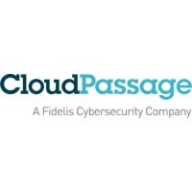


CloudPassage and Microsoft Defender for Cloud compete in cloud security solutions. Microsoft Defender holds an edge for its broad feature set.
Features: CloudPassage offers a lightweight agent, rapid deployment, and visibility across multiple environments. Microsoft Defender for Cloud provides comprehensive security management, robust threat detection, and extensive integration with Microsoft services.
Ease of Deployment and Customer Service: CloudPassage ensures a swift deployment with responsive service. Microsoft Defender requires more complex deployment but benefits from strong integration with Microsoft infrastructure and reliable support.
Pricing and ROI: CloudPassage is cost-effective, providing notable ROI in cloud security management. Microsoft Defender involves higher initial costs, justified by its extensive features and integration, offering potential long-term returns.
| Product | Market Share (%) |
|---|---|
| Microsoft Defender for Cloud | 16.7% |
| SentinelOne Singularity Cloud Security | 3.8% |
| CloudPassage | 0.4% |
| Other | 79.1% |

| Company Size | Count |
|---|---|
| Small Business | 48 |
| Midsize Enterprise | 20 |
| Large Enterprise | 54 |
| Company Size | Count |
|---|---|
| Small Business | 27 |
| Midsize Enterprise | 10 |
| Large Enterprise | 49 |
SentinelOne Singularity Cloud Security offers a streamlined approach to cloud security with intuitive operation and strong integration capabilities for heightened threat detection and remediation efficiency.
Singularity Cloud Security stands out for its real-time detection and response, effectively minimizing detection and remediation timelines. Its automated remediation integrates smoothly with third-party tools enhancing operational efficiency. The comprehensive console ensures visibility and support for forensic investigations. Seamless platform integration and robust support for innovation are notable advantages. Areas for development include improved search functionality, affordability, better firewall capabilities for remote users, stable agents, comprehensive reporting, and efficient third-party integrations. Clarity in the interface, responsive support, and real-time alerting need enhancement, with a call for more automation and customization. Better scalability and cost-effective integration without compromising capabilities are desired.
What are SentinelOne Singularity Cloud Security's standout features?SentinelOne Singularity Cloud Security is deployed in industries needing robust cloud security posture management, endpoint protection, and threat hunting. Utilized frequently across AWS and Azure, it assists in monitoring, threat detection, and maintaining compliance in diverse environments while providing real-time alerts and recommendations for proactive threat management.
CloudPassage Halo is an agile security and compliance platform that works in any cloud infrastructure: public, private or hybrid. The platform is unique because it provides continuous visibility and enforcement delivered as a service, so it’s on-demand, fast to deploy, fully automated and works at any scale.
The CloudPassage platform delivers a comprehensive set of security and compliance features, so you don’t have pay for and manage point solutions that often don’t integrate well with each other. Hundreds of companies use CloudPassage as a strategy to take full advantage of the business benefits of their cloud investments, with the confidence that critical business assets are protected. Using CloudPassage, security organizations achieve 6 critical control objectives with a platform that is flexible, fast and scalable:
Visibility: Immediate, consistent, continuous knowledge of what assets exist, where they reside, and what they’re doing.
Strong Access Control: Strong, layered controls enabling authorized access & denial of resources to unauthorized entities.
Vulnerability Management: Continuous detection & elimination of issues that create exploitable points of weakness.
Data Protection: Assurance that critical data is encrypted & used appropriately by authorized entities while in motion or at rest.
Compromise Management: Capabilities that enable detection & response to malicious or accidental compromise of resources.
Operational Automation: Day-to-day management of technologies & processes that ensure security & compliance.
Microsoft Defender for Cloud is a comprehensive security solution that provides advanced threat protection for cloud workloads. It offers real-time visibility into the security posture of cloud environments, enabling organizations to quickly identify and respond to potential threats. With its advanced machine learning capabilities, Microsoft Defender for Cloud can detect and block sophisticated attacks, including zero-day exploits and fileless malware.
The solution also provides automated remediation capabilities, allowing security teams to quickly and easily respond to security incidents. With Microsoft Defender for Cloud, organizations can ensure the security and compliance of their cloud workloads, while reducing the burden on their security teams.
We monitor all Cloud Workload Protection Platforms (CWPP) reviews to prevent fraudulent reviews and keep review quality high. We do not post reviews by company employees or direct competitors. We validate each review for authenticity via cross-reference with LinkedIn, and personal follow-up with the reviewer when necessary.